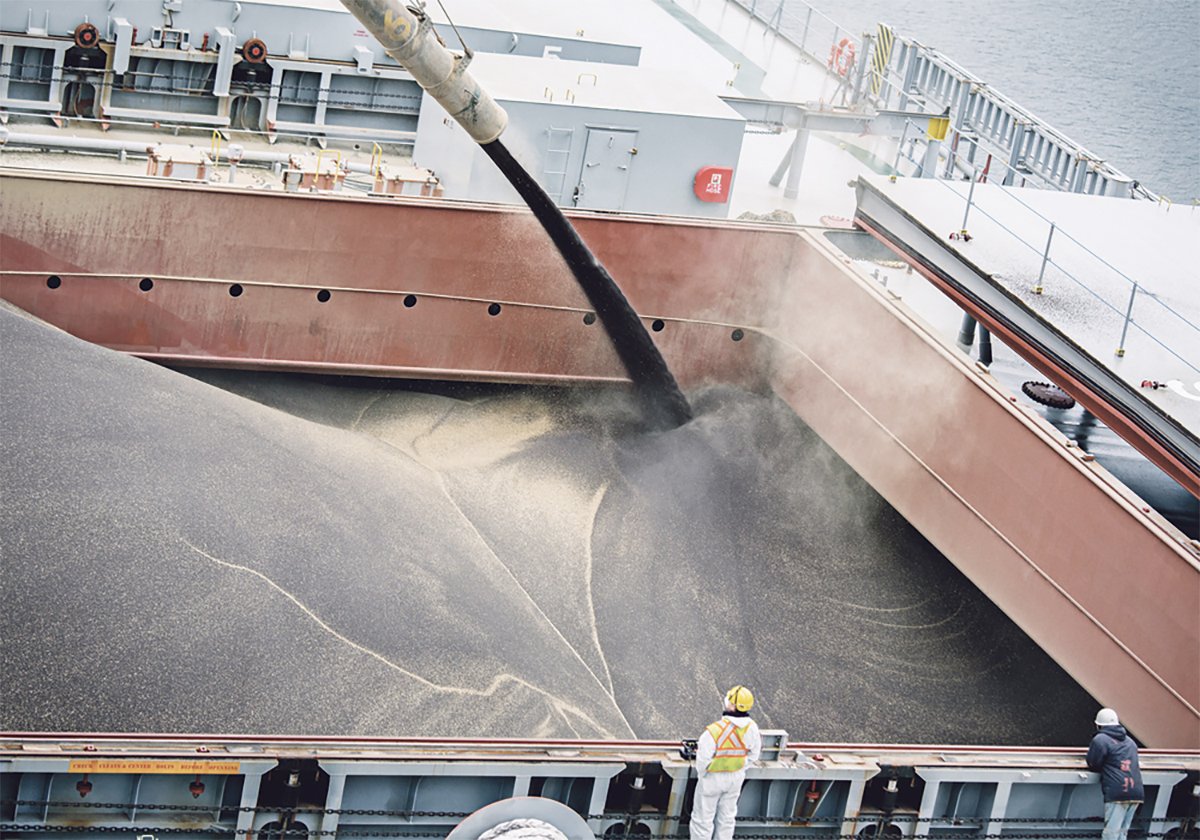All indications are that Northern Hemisphere farmers who seed in the fall planted more winter wheat this year.
Farmers chasing high crop prices with their seeders is a natural thing. The expectation of larger production next year has already reduced wheat prices from their September peak.
This reinforces my expectation that although today’s high grain prices have driven food prices somewhat higher, farmers will, over time, be able to increase production and prevent any real worries about food shortages.
But in the short term, and that could mean several years, there could be an uncomfortable squeeze in countries with large populations of poor people already hurt by rising energy costs and in danger from the negative effects of climate change.
Read Also

Exports off to a slow start after last year’s torrid pace
Canadian grain, oilseed and pulse exports are off to a slow start, but there are some bright spots, according to the Canadian Grain Commission’s most recent weekly export data report.
The government in China is definitely feeling uncomfortable. Food prices in October were 17.6 percent higher than last year, with vegetables up almost 30 percent and food oil up 34 percent.
Pork prices have also soared since an outbreak of Porcine Reproductive and Respiratory Syndrome killed a vast number of pigs.
Premier Wen Jiabao has taken to visiting poor areas to commiserate about high prices and promise that the government is doing something about it.
Chinese officials have said central and local governments would earmark close to $2 billion this year to encourage farmers to raise pigs and boost pork supplies.
In St. Petersburg, Russia, pensioners marched this month, banging empty saucepans and shouting anti-Kremlin slogans in protest of food price spikes.
A number of Russian food retailers have frozen the price of staples such as bread, milk, vegetable oil and eggs.
Russia already charges a tax on grain exports to try to keep more grain at home and might extend the curb into the new year.
Ukraine has also limited grain exports to control food costs.
India’s government has been under intense criticism for how it has addressed food inflation, including criticism for the way it handled wheat imports earlier this year. It announced its plan to buy large amounts, which triggered further wheat price increases.
African countries, so many of which suffer from poverty, AIDS and poor government, are perhaps the hardest hit by increasing energy and food costs.
The first job of government is to provide for the security and well-being of the people and that means ensuring an adequate food supply.
Shortages of affordable food lead to civil unrest and challenges to government authority.
The food situation should be a wake-up call for governments around the world to improve management, end corruption and focus on what is important. Foremost in this task is to examine and improve food production policy and justly reward farmers for the critical role they play in society.
That means knee jerk rejection of food-increasing technology like genetic modification must end.
Farmers must get a fair share of each dollar spent on food so they can invest in the skills and technology needed to keep pace with rising food demand.
Biofuel production must be approached in a sensitive manner, with policies designed to increase incomes for farm households so that the money is invested in raising productivity of all farm activities, including food production.
















